When Setting Up is the Hardest Thing To Do...
Monday 6 August 2007
This is a day I’ve been putting off for the last month. I knew it was going to be traumatic – and, by heck, I was right!
Zend Interview...
Wednesday 1 August 2007
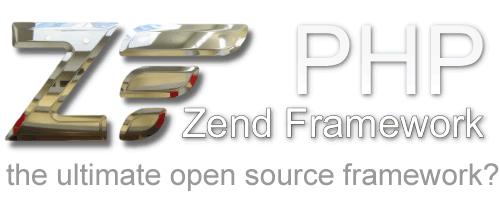
In July, Zend Technologies released version 1.0 of the Zend Framework, an open source application framework for PHP. Here, Huw Collingbourne talks to Mark de Visser, Zend’s Chief Marketing Officer, about Zend Framework, the future of PHP and the challenges of Ruby On Rails, Flex and Silverlight...
News of Drag and Drop PHP IDE
Thursday 26 July 2007
Not sure when this happened as I’ve only just noticed  The source code files are all dated May 11th, so maybe that’s a clue...
The source code files are all dated May 11th, so maybe that’s a clue...
The simple fun of Google Ads
Tuesday 24 July 2007
As a developer of a Ruby On Rails IDE, I necessarily spend a lot of my time reading Blogs about Rails . For the uninitiated, I should explain that Ruby is an object oriented language and Rails is the name of a web development framework. It has, as far as I am aware, no obvious connection with ball screws (whatever they are - I almost dread to ask...) so why did I only this morning see the following advertisement on a Rails Blog....?
Grrrrrr.....
Friday 20 July 2007
I’ve been putting this off for a long time. And with good cause! I administer a number of database-driven Web applications such as the Bitwise site itself and the site of my software company (both of which use the excellent SPIP CMS) plus a few other applications to manage newsletters and the like. Each of these requires an installation of MySQL, PHP and an Apache server. While these are all pre-installed on the online server, my local copies - used for development on my PC - have to be installed be me...
How To Create a Database Application in one line of code!
Wednesday 18 July 2007
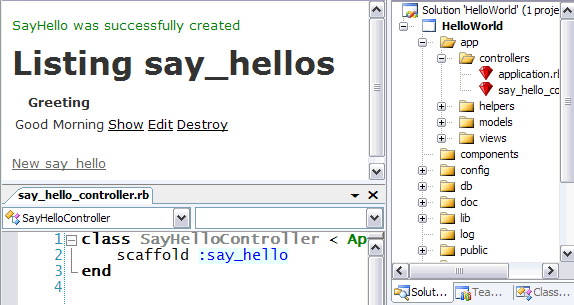
Here a simple Rails application (running in the web browser window at the top-left) is seen in the Ruby In Steel IDE. The Ruby code which we’ve entered to define the entire application is shown in the window beneath this. You can use an editor or IDE of your choice for this tutorial.
From Pascal to AJAX in a matter of moments...
Monday 16 July 2007
It takes a lot to make this crusty old reviewer go “Wow!” but Morfik’s remarkable WebOS AppsBuilder has done just that. I’m only going on first impressions at the moment, which are dangerous things to go on, so please assume all the usual caveats and get-out clauses in the wildly uncritical gushing that follows...
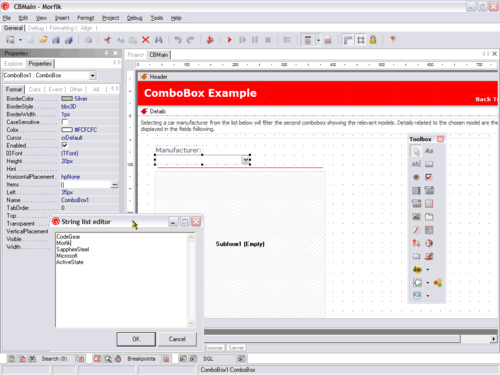
Morfik - AJAX apps written in Pascal, Basic, C# or Java...
Adobe Interview
Saturday 30 June 2007
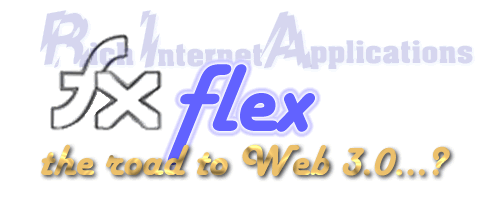
Currently Adobe’s Flex - the application development system which proves that Flash is more than just a pretty face - sets the standard for Rich Internet Applications. Here Huw Collingbourne talks to Dave Gruber, Adobe Systems Group Product Manager for Flex, to find out how Flex may change the way we create applications in future...
Microsoft’s new web/graphics/programming thing - now on Mono
Thursday 21 June 2007
Those chaps have been working rapidly...
Interview
Tuesday 19 June 2007

Huw Collingbourne talks to Jaspal Sohal, CEO of Multidmedia Ltd, about Flex, Flash, Silveright and the future of Rich Internet Applications...
Book Review
Wednesday 13 June 2007
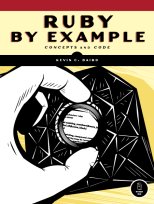 Ruby by Example: Concepts and Code - $29.95
Ruby by Example: Concepts and Code - $29.95
by Kevin C. Baird
No Starch Press http://www.nostarch.com/
312 pp.
ISBN-10 1-59327-148-4
ISBN-13 978-1-59327-148-0
Sounds familiar...?
Tuesday 12 June 2007
Yet more confusing messages from CodeGear. You might recall a bit of brouhaha last year when the French technology magazine, Le Monde Informatique, stated that CodeGear planned to bring to an end the life of its Object Pascal IDE, Delphi, as a standalone product and move the language into Microsoft’s Visual Studio.
Hurrah! (maybe...)
Monday 11 June 2007
I am in two minds about Apple’s forthcoming Windows version of its Safari browser (now available in beta). On the one hand, I, in common with many Windows users, secretly lust for hardware and software that looks as nice as that Mac stuff.
Dynamic Languages On The Web...
Friday 1 June 2007

Recently Microsoft launched its Silverlight browser plugin for ‘rich internet applications’ and announced its Dynamic Language Runtime for programming Silverlight and other types of application using languages ranging from VB to Ruby. Here Huw Collingbourne asks John Allwright (Expression Product Manager, Microsoft UK) to explain what all the fuss is about...
The dynamic language IDE takes on Rails
Monday 21 May 2007
ActiveState has just released an update to their Komodo IDE for dynamic languages (see my review of Komodo 4.0).
Interview
Monday 14 May 2007
Recently, the Borland developer tool company, CodeGear, launched its first dynamic language IDE, Delphi For PHP. Next on their agenda is a Ruby IDE. So what’s the big deal with dynamic languages? And what implications does this have for their flagship product, Delphi? Here Huw Collingbourne puts these questions to CodeGear chief scientist, Allen Bauer...
Book Review
Thursday 10 May 2007
In Search Of Stupidity $24.99
(Over 20 Years of High-Tech Marketing Disasters) / 2nd Edition
by Merrill R. Chapman
APress: http://www.apress.com
ISBN: 1590597214

More on Ruby and Smalltalk...
Thursday 10 May 2007
Just in case you are interested...
Monday 7 May 2007
People have been saying that Borland is "on the way out" for almost as long as I can recall - in fact, in spite of some notable ups and downs, the company has proven, time and again, to be one of the great survivors in the software industry, so I wouldn’t wager on their immediate demise...
Name games...
Monday 7 May 2007
If you Google for IronRuby you will find two lots of links - some will take you to Microsoft, others will take you to the web site of Wilco Bauwer.
More..
|
|
|
|
|
340
|
|
|
|
|